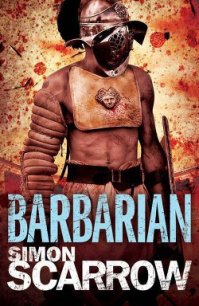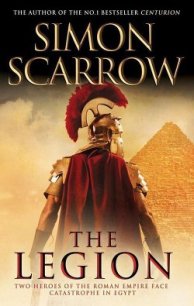The Fields of Death - Scarrow Simon (читаем книги онлайн бесплатно txt) 📗
‘Yes, sire. He intends to follow them in order to prevent them from reaching Brussels, and joining Wellington.’
‘Good. That is the right thing.’
‘Shall I acknowledge his message, sire?’
‘What? No . . . No, it’s not necessary.’ Napoleon shook his head and then crossed the room to sit on a bench by the rain-streaked window. He leaned his head back against the plastered wall and shut his eyes.
The rain finally stopped just before dawn and as the first glimmer of light stretched across the landscape the sodden men of the Army of the North stirred from beneath their drenched blankets and coats and built up their fires with whatever wood was left. Then, huddled round the blaze, as they tried to get warm and let their uniforms dry out, they quickly ate some of their remaining rations before packing their kit and forming up in their companies.
At the army’s headquarters Napoleon was having breakfast with his staff. Despite the hardships and lack of sleep in recent days the mood around the Emperor was light-hearted. One of the allied armies had been beaten and now another would share its fate. The only issue to spoil Napoleon’s mood that morning was a report from General Drouot that the ground was too wet for the artillery to be moved forward to a position where they would have the enemy line in range. The wet ground would also lessen the impact of any artillery fire since the shot would not be able to ricochet off the ground and would simply bury itself in the muddy soil. Therefore Drouot requested that the attack be delayed until late in the morning. After brief consideration Napoleon consented. He had a clear superiority in artillery and it would make sense to use that to best effect.
‘Well, then,’ he announced. ‘It seems that the army will be at leisure this morning.’ A distant bell began to toll. ‘Of course, it is Sunday, the day of rest. Most propitious, this rain.’
His officers smiled. Even Soult, whose usual energetic demeanour had been somewhat dampened by the burdens of his new position as chief of staff, relaxed a little. He waited a moment and then coughed before he addressed the Emperor.
‘Sire, since the start of the engagement is to be delayed, might we recall Grouchy and put the result of the battle beyond doubt?’
‘Doubt?’ Napoleon was taken aback. ‘You doubt the outcome? Why, we have ninety chances in our favour and not ten against. We do not require Grouchy. Soult, just because you were beaten by Wellington does not make him a good general. If he was, then he would surely not have chosen such poor ground to defend. His difficulties are compounded by the poor quality of his troops. I tell you, this will be a brief battle, not much more effort for us than eating this breakfast.’
‘Truly, I hope so, sire.’
‘What about you, Reille?’ Napoleon turned to another of his commanders who had faced Wellington. ‘Do you share Soult’s anxieties about the quality of our opponents?’
Reille recognised the change in his master’s mood and answered cautiously. ‘Wellington knows how to defend, sire. Attacked from the front his troops are all but impregnable. However, we have the advantage in cavalry. If we manoeuvre on his flanks, then he must surely be defeated.’
‘Rubbish!’ Napoleon barked. ‘A frontal attack is all that is necessary to break his line. You shall see. And this we can achieve,’ he turned back to Soult, ‘without Grouchy.’
Soult bowed to his master’s will. ‘Very well, sire. But may I at least communucate with Grouchy your desire that he should close up on the Prussians at Wavre?’
‘As you will,’ Napoleon replied carelessly. ‘Tell him to keep pushing the Prussians back before him. Now then,’ he rose from his chair, ‘since there is time, I will inspect my soldiers. Soult, you will establish the command post at that inn . . .’ He clicked his fingers.
‘La Belle Alliance, sire?’
Napoleon nodded. ‘It will provide a fine view of the destruction of Wellington’s army.’
Mont-St-Jean, 10.00 a.m.
Arthur had joined his army soon after dawn and ridden along its length, to make sure that his men were in position and prepared for the coming battle. As he passed by the men cheered him and Arthur, true to the cool demeanour he had imposed on himself for many years now, occasionally favoured them with a curt nod. There was a constant crackle of muskets as the men fired into the air to clear the barrels of any moisture or grit washed in by the previous night’s deluge. The rain had also had another peculiar effect that amused the men. The dye from their jackets had run and the white cross belts were stained red. Arthur hoped it wasn’t an omen.
He had decided to ensure that his right flank was where his main strength would lie, in case Bonaparte attempted to hook round the army’s position. The left, in the direction of Blьcher, was far less formidable, and Arthur knew that he was taking a gamble on the timely arrival of his ally. The artillery had been sited along the crest of the ridge, where it could pound the French columns as they advanced to attack. Behind them, sheltered by the reverse slope, the infantry waited in a staggered line while much of the cavalry was massed behind the centre. A handful of farms lay scattered across the front of the allied line and these had been fortified, ready to act as strongpoints to break up the enemy’s assaults. On the right was the small country estate of Hougoumont where Arthur had placed the Foot Guards, the cream of his infantry, and in front of the centre, on the road to Brussels, stood the large farmhouse of La Haye Sainte, defended by a battalion of the King’s German Legion.
Arthur completed his inspection of his battle line and joined his staff officers on the ridge a short distance above the chateau and grounds of Hougoumont. ‘Good morning, gentlemen!’ he called out cheerfully.
They returned the greeting and touched the brims of their hats in salute. A figure at the rear of the press of officers edged his mount through and Arthur saw that it was General Mьffling. He trotted forward to Arthur’s side.
‘Sir, I have been looking for you this last half-hour. I have received a message from Marshal Blьcher, sent at seven this morning.’
Arthur composed himself before he responded. ‘Well?’
‘He promises to support you with at least two corps of his army. And he will lead them in person.’
Arthur felt a lightness of spirit fill his heart and he allowed himself a faint smile as he spoke to Mьffling. ‘I thank you, my friend. That is the very best of news.’
Arthur tugged on the reins and Copenhagen, his favourite mount, edged round to face the enemy, less than a mile away. As he surveyed the French, clearly massing for a frontal attack, Arthur realised quite how small the battlefield was. No more than three miles by two, within which the best part of two hundred thousand men were preparing to contest the ground. The French were manhandling the last of their guns into position, in the middle of their battle line.
‘There’s Napoleon, your grace,’ a voice called out.
Arthur glanced to his side. ‘I’ll thank you not to get carried away by your enthusiasm, de Lancey.’
His young quartermaster-general flushed. ‘I apologise, your grace.’ Arthur turned to gaze across the vale separating the two armies. Napoleon was clear to see, mounted once more on his snow-white horse, and escorted by a squadron of Polish lancers. As he made his way steadily between the massed formations of infantry his soldiers cheered wildly, some raising their shakos up in the air on the end of their muskets.
‘They put on quite a show,’ Uxbridge mused. ‘Doubt we’ll ever get the damned battle started at this rate.’
Arthur said nothing as he continued to watch his opponent. He was quite content for the French to waste time. Every minute that passed bought more time for Blьcher’s soldiers to reach the battlefield. Bonaparte seemed wholly unconcerned by the passage of time as he paraded through the formations of his army for the best part of an hour before returning to his command post beside the Brussels road. A few minutes later a signal gun boomed from close by the Emperor’s position.




